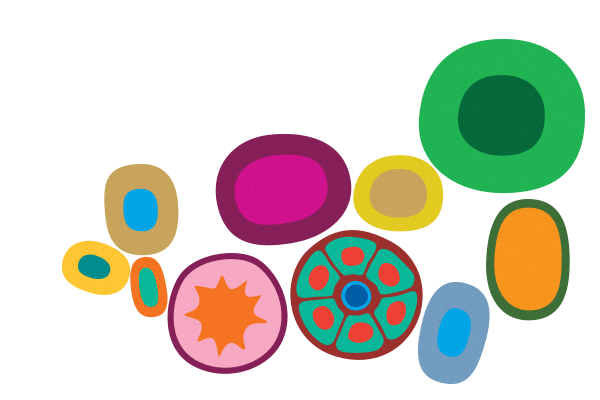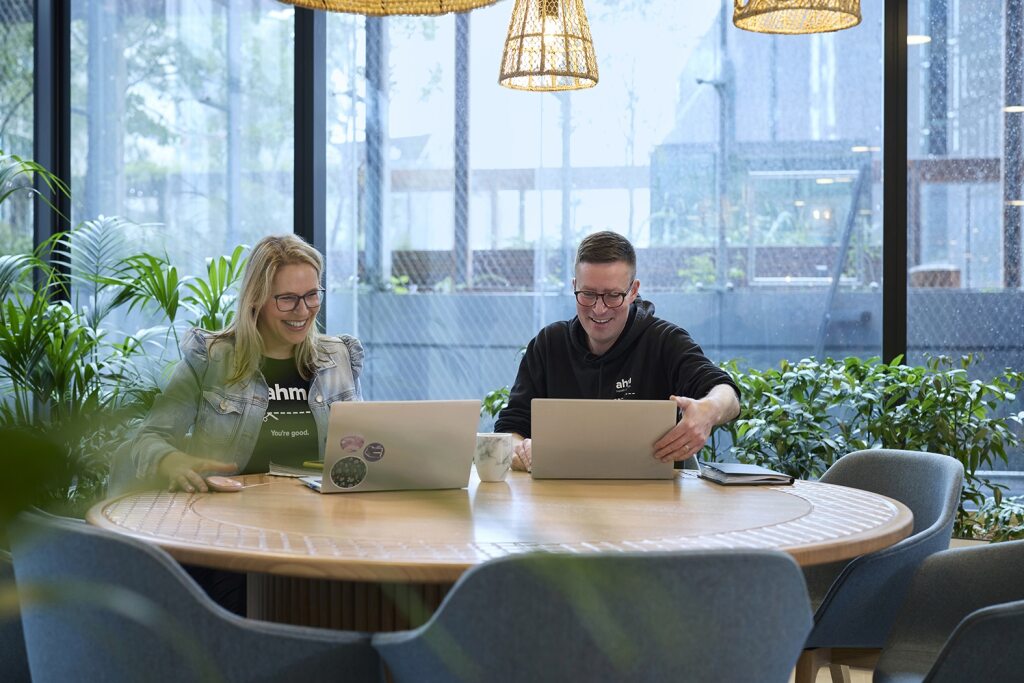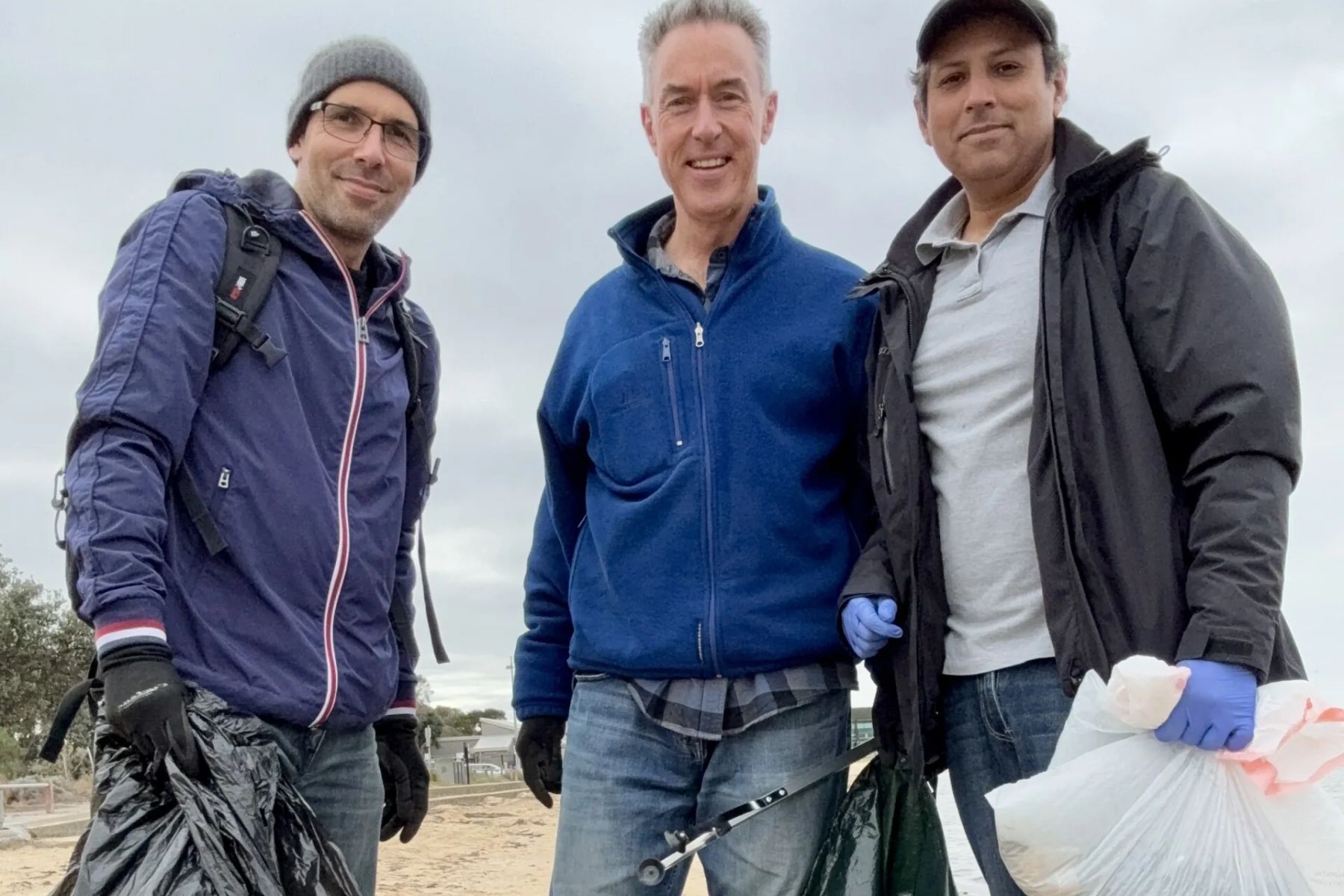Achieving our vision to deliver the best health and wellbeing for our customers, our people and our community relies on us doing what we can to protect the health of our planet. We recognise the science of climate change and we appreciate the impacts it can have on human health and the role the health sector needs to play in reducing our environmental impact. We are taking steps to reduce the environmental impact of our operations and supply chain and are committed to transparently sharing our progress. For details about our progress against our sustainability commitments in the environmental health space, refer to our Sustainability summary 2025 and our ESG Databook 2025 (which also contains a glossary of key terms used here).
Our work in environmental health is guided by our material topics and commitments:
Environmental health and climate change
- Continue to strengthen disclosure of how we respond to climate change and collaborate to reduce environmental impacts
- Progress against short and medium-term Net Zero targets
- Maintain carbon neutral certification for our Scope 1, 2 and 3 emissions
The Australian Government has introduced mandatory sustainability reporting for climate-related financial disclosures, which will require reporting against the Australian Accounting Standards Board Standard 2, Climate-related Disclosures (AASB S2). We welcome the introduction of these standards to help provide clarity over reportable sustainability information. We’re required to report in line with these standards from our FY26 reporting period. We continue to collaborate across the business to prepare for the application of these standards. Please refer to our Sustainability Summary for further detail of our progress towards preparing for mandatory disclosure for FY26.
Our Net Zero pathway was established in FY21 and is based on Medibank Group’s business-as-usual operations at that time, and doesn’t account for any future partnership or investment activity.
As part of our Net Zero pathway, as at 30 June this year, we met our Net Zero target for Scope 1 and 2 emissions, set in FY21, aligned to our business structure at the time.1 To reach the target we successfully transitioned the Amplar Health’s vehicle fleet to hybrid models and offset residual emissions (2.55% of the baseline Scope 1 and 2 emissions) through Carbon Removal projects.2 Hybrid vehicles provide our mobile nursing and allied team with the range and flexibility to safely drive to patients in metro and rural areas and GreenPower® for 100% of electricity consumed, to reach the target.
In line with the Greenhouse Gas Protocol Corporate Accounting and Reporting Standard (GHG Protocol) and in preparation for mandatory reporting under AASB S2, Medibank has re-baselined its FY21 GHG Scope 1, 2 and 3 emissions to reflect acquisitions since 2021 and the increased investment in Myhealth.1 As a result, reported emissions for baseline year FY21 have increased by 75.9% to a total of 27,544.1 t CO2-equivalent. Our next step will be to reassess targets and our decarbonisation pathway.
In line with the Greenhouse Gas Protocol Corporate Accounting and Reporting Standard (GHG Protocol) and in preparation for mandatory reporting under AASB S2, Medibank has re-baselined its FY21 GHG Scope 1, 2 and 3 emissions to reflect acquisitions since 2021 and the increased investment in Myhealth.3 As a result, reported emissions for baseline year FY21 have increased by 75.9% to a total of 27,544.1 t CO2-equivalent. Our next step will be to reassess targets and our decarbonisation pathway.
1 Medibank’s Net Zero targets were set in FY21, when our Board-endorsed pathway was announced, and therefore do not include Myhealth or other acquisitions since FY21
2 In alignment with the Science Based Targets initiative (SBTi) Corporate Net-Zero Standard, we applied a removals-based approach to address residual emissions, those emissions that remain after all feasible abatement measures have been implemented. We calculated total FY21 baseline Scope 1 and 2 emissions and identified the portion of residual Scope 1 emissions in FY25 that were addressed through carbon removal purchased from Verra-certified projects in accordance with the Verified Carbon Standards (VCS). This accounted for 2.55% of our base year emissions and reflects our commitment to balancing unavoidable emissions at the net-zero target year
3 The re-baselining exercise applies Medibank’s current operational control and organisational boundaries and aligns to the GHG Protocol
Medibank is committed to investing in accredited carbon offset projects that align with our sustainability strategy and contribute to the United Nations Sustainable Development Goals (SDGs). As part of this commitment, we are supporting Olkola Aboriginal Corporation’s Savannah Burning Project in the Cape York Peninsula, which is issued Australian Carbon Credit Units. This project delivers environmental benefits through traditional fire management practices and supports social and economic opportunities for First Nations communities.
The ‘Olkola Ajin – Olkola Fire project’ is an early dry season savanna burning project. Through fire management in the early dry season, the Olkola’s project aims to reduce greenhouse gas emissions by avoiding the release of 50,000 tonnes (on average) of carbon dioxide per year that would otherwise occur due to larger, higher intensity late dry season fires. The strategic burning activities are a cultural tradition amongst Indigenous populations of Northern Australia having been used for generations to manage the land. The Olkola’s project has direct cultural, social, economic and environmental co-benefits including:
- Protection of cultural sites
- Olkola rangers receiving education, training and jobs
- Mosaic burns leading to improved biodiversity outcomes.
As part of our carbon removals portfolio, we support the Delta Blue Carbon – a project in Pakistan’s Indus Delta. This large-scale mangrove reforestation initiative is expected to remove an average of 2.4 million tonnes of CO₂ annually through tidal wetland restoration across more than 350,000 hectares.
In addition to verified carbon removals, the project delivers significant co-benefits:
- Local employment and training for men and women
- Improved access to clean water, education, and health services
- Support for sustainable fisheries and energy solutions
- Enhanced biodiversity through mangrove ecosystem recovery
The project is implemented via a public-private partnership and is registered under the Verified Carbon Standard (VCS).
Additional offsets purchased are aligned with SDG outcomes, and Medibank takes steps to confirm that these projects are both socially and environmentally responsible.



.jpg)
